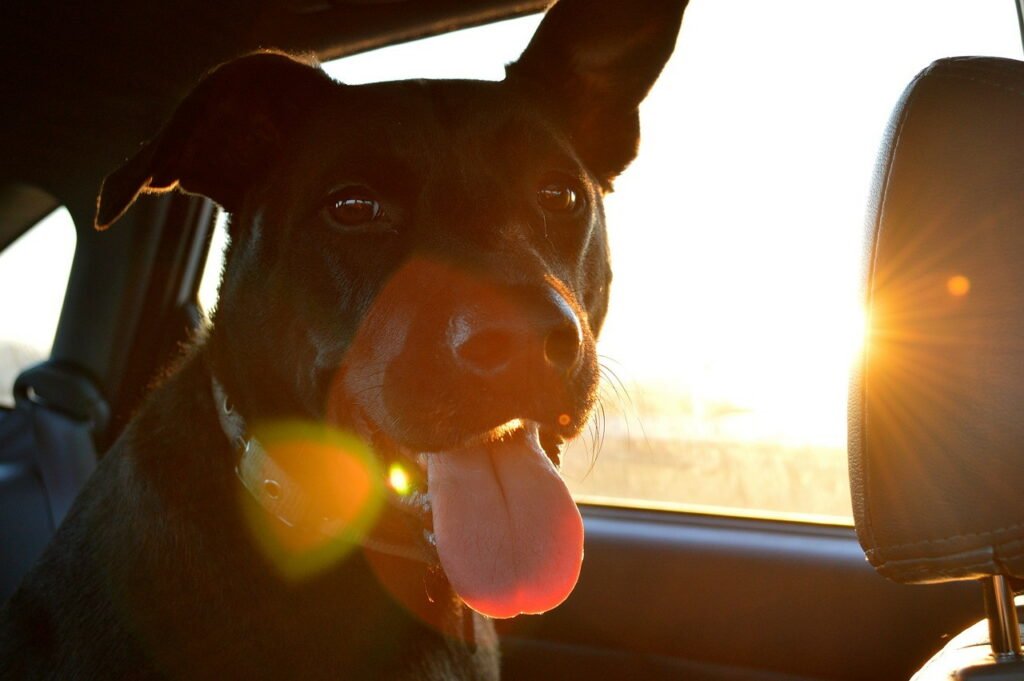44% of motorists admitted in a survey to leaving their dog in a car & 77% of these on a hot day.
Every year for as far back as I can remember, and that’s a long time, dog owners have continued to ignore all advice about leaving their dogs in cars. It is not a fair or sensible action in any circumstance, but particularly reckless and thoughtless on hot and humid days. A recent survey in 2017 by Confused.com discovered that 44% of motorists admitted to leaving their dog unattended in a car and worryingly 70% of those also admitted they had left their dog for over 8 minutes on a hot day.
Confused.com also attempted to find out how many people would intervene if they saw a distressed dog in a car. They used a lifelike toy dog and played sound effects of it in distress and more than 74% of drivers failed to come to its aid. An interesting point of this survey was that 23% of people did not know their legal rights if they were to cause damage while rescuing the dog and were not sure who to call for assistance.
Would you break a window to rescue a dog from a hot car?
Would you be the person to risk being prosecuted for damaging a car or would you pass the buck to someone else? Of course the conundrum would not arise if we all acted like the dog lovers we are supposed to be.
Under section 5(2)(a) of the Criminal Justice Act 1971 you can damage someone’s property if you think the owner of the property would consent if they were aware of the situation. The problem is that if you did decide to commit the act, the odds are against you getting away with it, because dog owners are quick to take offence if anyone dares to accuse them of not looking after their pet properly and are likely to report you.
Back in the day it was far easier to break into cars if you knew some of the tricks of the trade, but new cars are far more sophisticated. I have called out the police in the past who have managed to get in without causing damage while others have turned up, asked me if I agreed the dog was at risk and just smashed the window with no ceremony.
But how do you judge whether a dog is at immediate risk, how long it has been in the car and how long before it is likely to succumb to heatstroke? There is no real answer to that and this is where you can get into trouble for unnecessarily taking drastic action. Some breeds are more prone than others. Flat nose breeds have difficulty in breathing at the best of times so should never be left and old dogs are also more prone.

Can you recognise heatstroke in a dog?
A dog will pant excessively trying to expel heat from its body. It will also salivate or drool. In latter stages the dog will vomit, collapse, become unconscious and die without help. It is not a pleasant death.
So what to do?
It all depends on the situation. Most people have mobile phones so take a photo or better still a video of the dog, the car registration, the car park ticket if there is one and where it is parked in the sun, although it can get hot without direct sun. You can use this information to make a complaint to the police. At a shopping mall or event you can go to customer services and get an announcement made.
If the dog has symptoms of heatstroke call the police on 999 -not the RSPCA who do not have powers (as we won’t let them), or the manpower to get there quickly. Don’t let the police fob you off to the RSPCA. If you intend breaking in tell the police you are about to commit the act and why.
The bottom line is that we shouldn’t need to have this discussion if dog owners just acted sensibly and thought more of their dog’s welfare.

